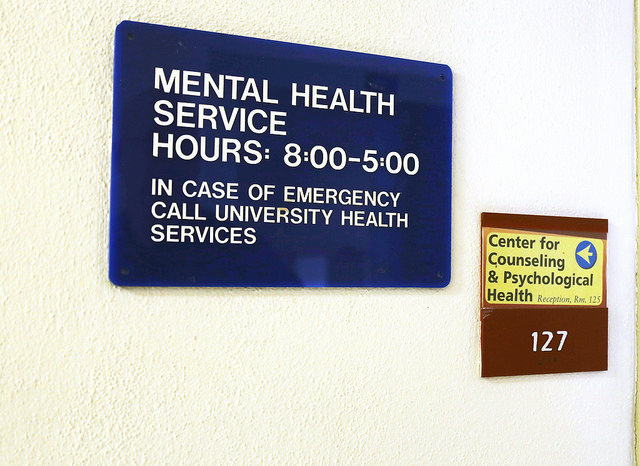For many undergraduate students, the experience of attending college can put a strain on an individual’s mental well-being. The climate that college-aged young adults exist in requires intense focus, dedication and often excessively hectic schedules. In conjunction with many other societal factors, young adults today are suffering from mental illness at an excessively high rate: the Center for Disease control reports that suicide is “the No. 2 leading cause of death among those ages 15-34.” When considering these alarming statistics, I find it admirable that University of Massachusetts has a department dedicated to these issues, the Center for Counseling and Psychological Health. However, upon closer inspection, this student service needs some improvements in order to better treat young adults struggling with their mental health.
The CCPH is extremely busy assisting the numerous students looking to utilize its services. Unfortunately, this high volume of students creates unreasonable wait times for those seeking to initiate the process of counseling. A close friend of mine recently sought counseling from the department and waited nearly a week and a half to even speak with someone on the phone for a consultation. After this conversation, she was told that she could begin counseling sessions in three weeks at the earliest.
A student in need of mental health support should not be kept waiting for weeks before they are able to begin treatment. What does that say about University’s commitment to the well-being of their students? The internal battle associated with realizing a need for mental health treatment can be exceptionally difficult, and in some ways, an evaluation process of this length can discourage a prospective patient from entering the system at all. I must speculate that the university has not allocated enough resources to this center to appropriately handle the large swaths of students in need of help. This method of evaluating potential patients is not only irresponsible, but potentially dangerous to students. There is nothing more invalidating to someone seeking help than being met with an unrealistic course of treatment. However, I do not assign blame to the undoubtedly hardworking professionals of this department but to the University’s organization of this resource.
Another adverse quality of the CCPH is the short-term capacity available to counsel students. In fact, individual counseling is only offered in three to five sessions total. This system forces students to wait for a consultation, continue waiting to start their appointments and then only receive actual assistance within three to five meetings. The expedited nature of this care creates the impression that students are expected to sort out their personal struggles within an extremely short period of time.
To me, UMass has dehumanized its students by expecting them to improve their mental health with the least amount of support possible. How can the University expect meaningful progress to occur given such an accelerated policy of treatment? An additional flaw to this arrangement is the assumption that students should be able to become comfortable with their counselor in such a short time only to move on to seek treatment outside of the University. Students are often referred to mental health professionals in the surrounding area following their sessions on campus, which would effectively mean that these patients would have to start the process of treatment all over again. The sheer effort it takes to open up to a single professional is challenging — repeating this step with a new person is simply unrealistic. A strong relationship between patient and counselor is necessary for positive change to occur, and this stipulation hinders that requirement. Why should a student become familiar with a University counselor, only to be told to seek help elsewhere? In addition to this growing inconvenience, referring a student to other counselors requires them to leave campus for appointments, which some are not always able to do.
UMass must implement changes to the counseling services immediately. The current system is a half-hearted attempt at claiming responsibility for the wellbeing of students. Again, the dedicated professionals at work in the CCPH are not at fault in this situation. Perhaps it would be of assistance to students for the University to provide this department with more staff and resources to better treat those seeking help. With mental illness affecting so many young adults, we simply cannot afford to skimp on providing support to anyone in need of it. Though no system is inherently perfect, University of Massachusetts must put a stronger emphasis on ensuring mental health practices are accessible, productive and meaningful.
Jake Russian is a Collegian columnist and can be reached at [email protected].



















Amy • Oct 24, 2018 at 1:29 am
I went there before, I thought they did a good job. This is just another typical op-ed article that is ..complaining about something.
If anything Umass extends far too much time to people’s mental issues and goes out of their way to coddle other people’s emotions.